Actress Tunisha Sharma’s suicide on set and accused boyfriend Sheezan Khan’s revelation about him trying to help her cope with OCD and depressive behaviour throws up the prickly subject of how far should and can partners go in trying to play mender
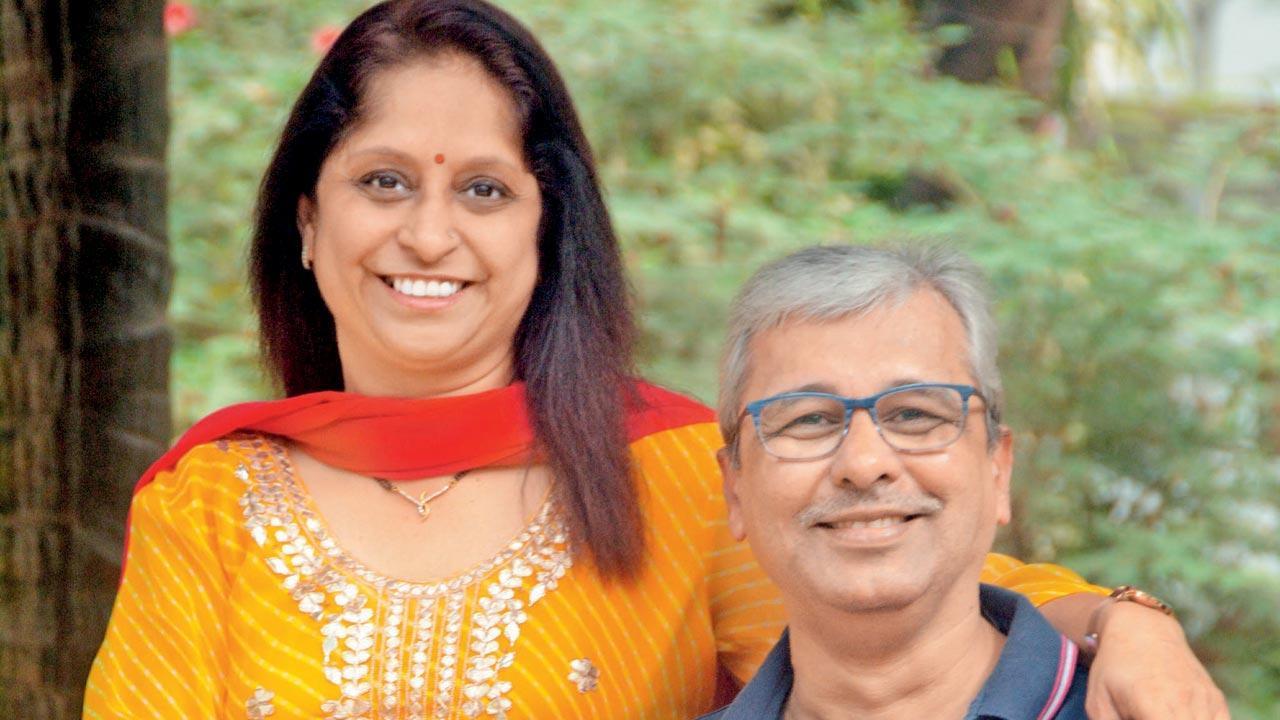
Ghatkopar resident Kalpesh Shah battled depression for two years during which he had stopped talking to everyone, including his wife Mansi and their twin daughters. She says that the first step to healing was acceptance. While Kalpesh sought treatment from a psychiatrist, the couple also went for counselling, which changed their lives for the better. Pic/Satej Shinde
It was eight years ago when Barkha Menghani, 32, a banking professional living in Navi Mumbai, realised that she is slipping into depression. It was triggered by a past relationship where her partner cheated on her. It took her several months to overcome it, but three years ago, when she was asked to resign from a job, she sunk into another bout. “My self-esteem took a hit,” she tells us over a telephone call. “I was looking for a means to end my life and couldn’t share that with my partner. I didn’t know how to.” She’s currently spending time with her boyfriend, Amit Khandelwal, in Singapore.
ADVERTISEMENT
Menghani finally told him, and asked whether he ever had suicidal thoughts. “Neither could he connect with this nor did he know what to do,” she says.
 Tunisha Sharma and Sheezan Khan
Tunisha Sharma and Sheezan Khan
“The first challenge was to accept that there is such a thing as depression,” shares Khandelwal, “and that Barkha was genuinely going through it. That it was possible for her to have so much energy one moment, and none minutes later.” The truth hit the IT professional hard when a psychiatrist conducted tests and the medical report showed depression.
By then, Menghani had started therapy. “But there was a lack of emotional support [from Amit] so I suggested couple therapy,” she shares, “After the sixth session, I decided to end the relationship—I was feeling caged and not loved.” Khandelwal was taken aback and requested her to not break up. He confessed he was unable to process his own emotions, and promised to seek help to understand her better.
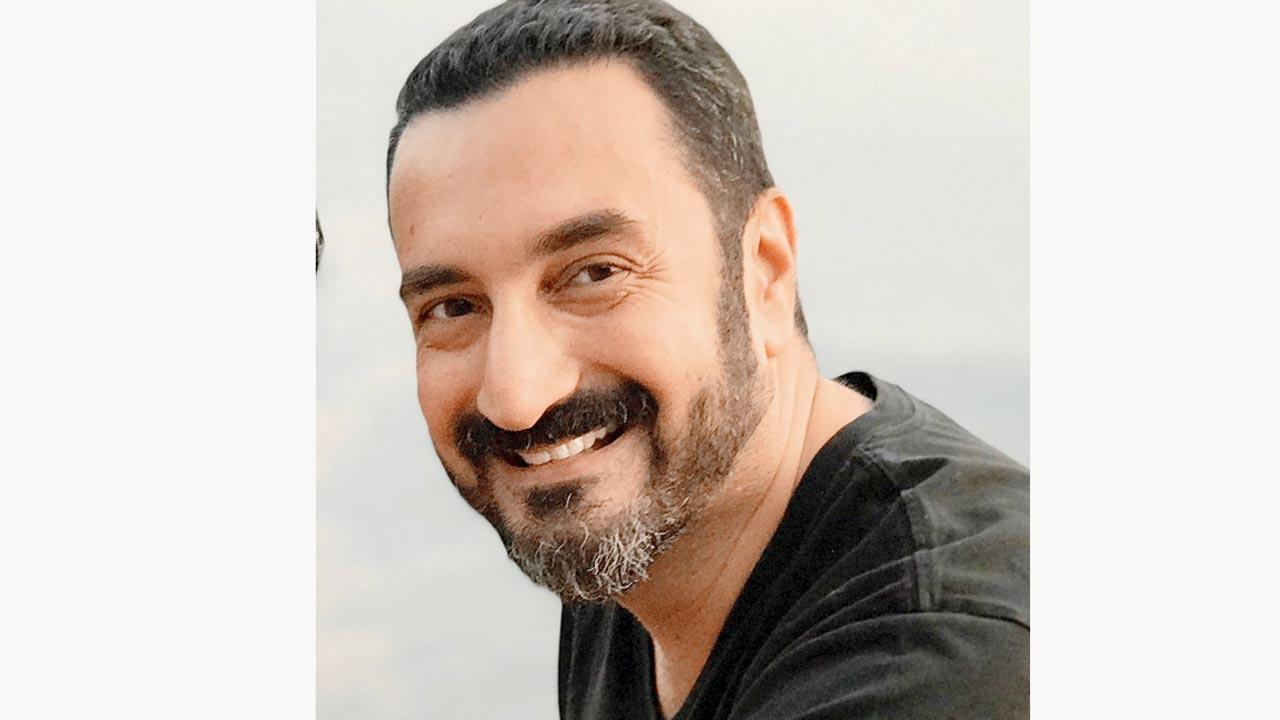 Dr Zirak Marker, child, adolescent and family psychiatrist
Dr Zirak Marker, child, adolescent and family psychiatrist
“Some of us dismiss therapy and mental health challenges,” accepts the 46-year-old. “I also negated it. I wondered, why can’t we sort it out between us? Why do we need a third person? I was very defensive; couple counselling works only when both partners are receptive.”
Their relationship transformed drastically after individual therapy. “It has been a-year-and-a-half and I still go for therapy,” he says, adding that the journey becomes confusing and stressful when you have to also deal with your partner’s illness “because you don’t have the training and you don’t know what to do. While you may ask him/her ‘how you are feeling?’ ‘how can I help?’, perhaps all s/he needs is for you to hold their hand and sooth them. I am glad I didn’t give up.”
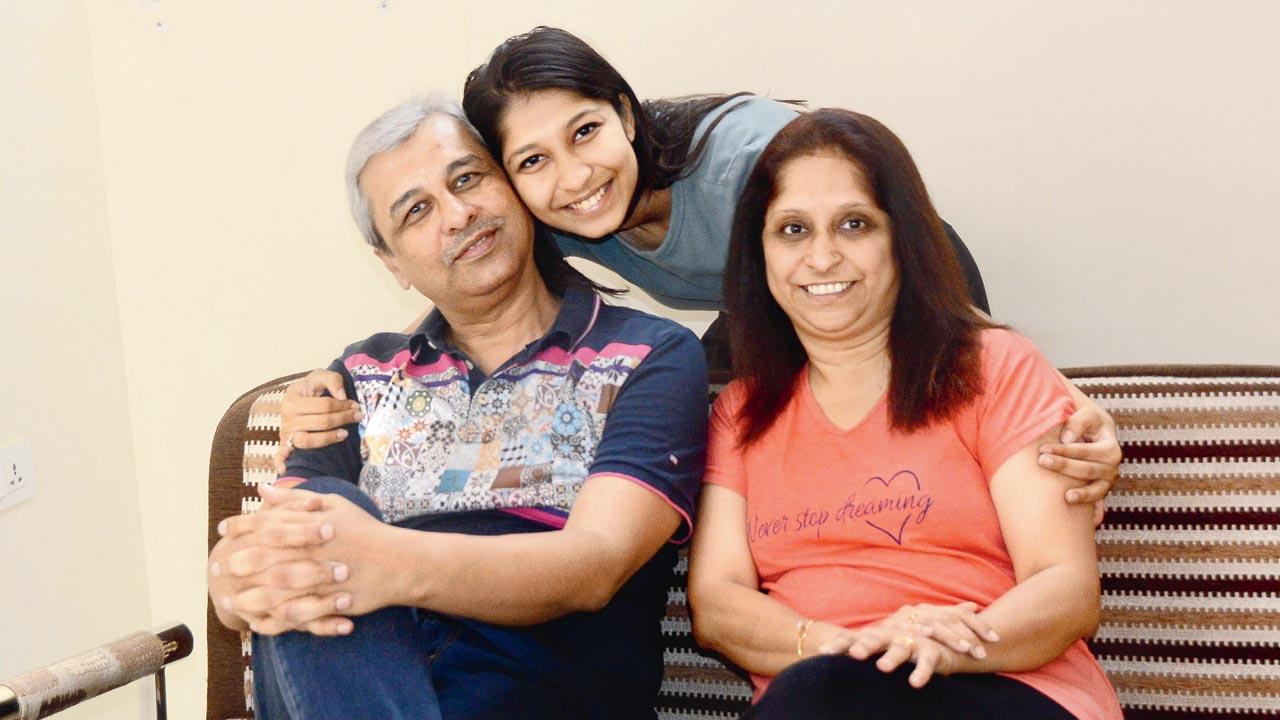 Kalpesh Shah with his wife Mansi and their daughter Ami at their residence in Ghatkopar. Life was full of laughter for them until 2016 when Kalpesh sunk into depression for more than two years, and stopped participating in any conversation, family gatherings, or outings. Pic/Sayyed Sameer Abedi
Kalpesh Shah with his wife Mansi and their daughter Ami at their residence in Ghatkopar. Life was full of laughter for them until 2016 when Kalpesh sunk into depression for more than two years, and stopped participating in any conversation, family gatherings, or outings. Pic/Sayyed Sameer Abedi
“The last year has been our best time in the relationship even though currently, we are living in different countries,” says Menghani, adding, “That’s not easy, especially for me, whose love language is physical—hugs, kisses and attention.”
Menghani and Khandelwal repaired their relationship, but not everyone can.
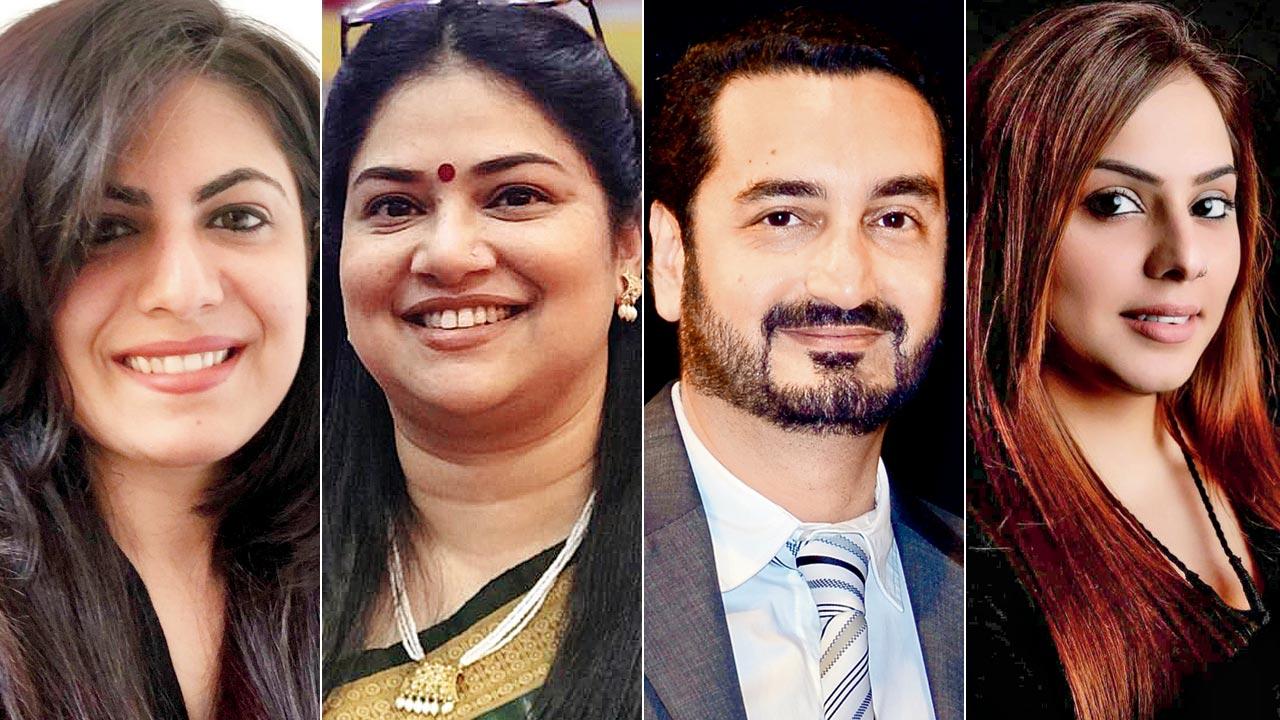 Dr Tanu Puri, Rwituja Gomes Mookherjee, Zirak Marker and Chandni Tugnait
Dr Tanu Puri, Rwituja Gomes Mookherjee, Zirak Marker and Chandni Tugnait
Recent news reports suggest that actress Tunisha Sharma, who reportedly died by suicide, suffered from anxiety and obsessive-compulsive disorder (OCD). Last week, a media report quoted a police statement to court saying Sheezan Khan, her ex partner, knew she suffered anxiety and OCD, and yet sparked a relationship with her and broke up against her wishes.
A similar narrative did the rounds after actor Sushant Singh Rajput’s demise. Reports suggested he suffered from bipolar disorder, and many of his fans targetted his girlfriend, Rhea Chakraborty, for not being supportive enough.
 For Madh Island-based freelance writer Yashnashree, a potential partner who seeks therapy is in fact, a green flag. “It shows that the person is invested in their growth and is working on their trauma,” she says, adding that it also means that she won’t have to bear the burden of being their unpaid therapist. Pic/Nimesh Dave
For Madh Island-based freelance writer Yashnashree, a potential partner who seeks therapy is in fact, a green flag. “It shows that the person is invested in their growth and is working on their trauma,” she says, adding that it also means that she won’t have to bear the burden of being their unpaid therapist. Pic/Nimesh Dave
“A relationship is layered and it’s wise not to comment on what’s transpiring between a couple,” says Dr Zirak Marker, Breach Candy-based child, adolescent and family psychiatrist. He adds that dealing with a mentally ill loved one can take a toll on the caregiver. “Some may feel, it’s unfair for a partner to consider breaking up if the other suffers from a mental health challenge, but we cannot underestimate the pressure this puts on the caregiver. It is extremely stressful for loved ones to witness these severe situations.”
Dr Tanu Puri agrees. “The partner struggles with not just following the patient’s schedule of medication and keeping the home environment pleasant, but also dealing with the stigma that comes with mental illness,” says the Wadala-based counsellor and psychotherapist.
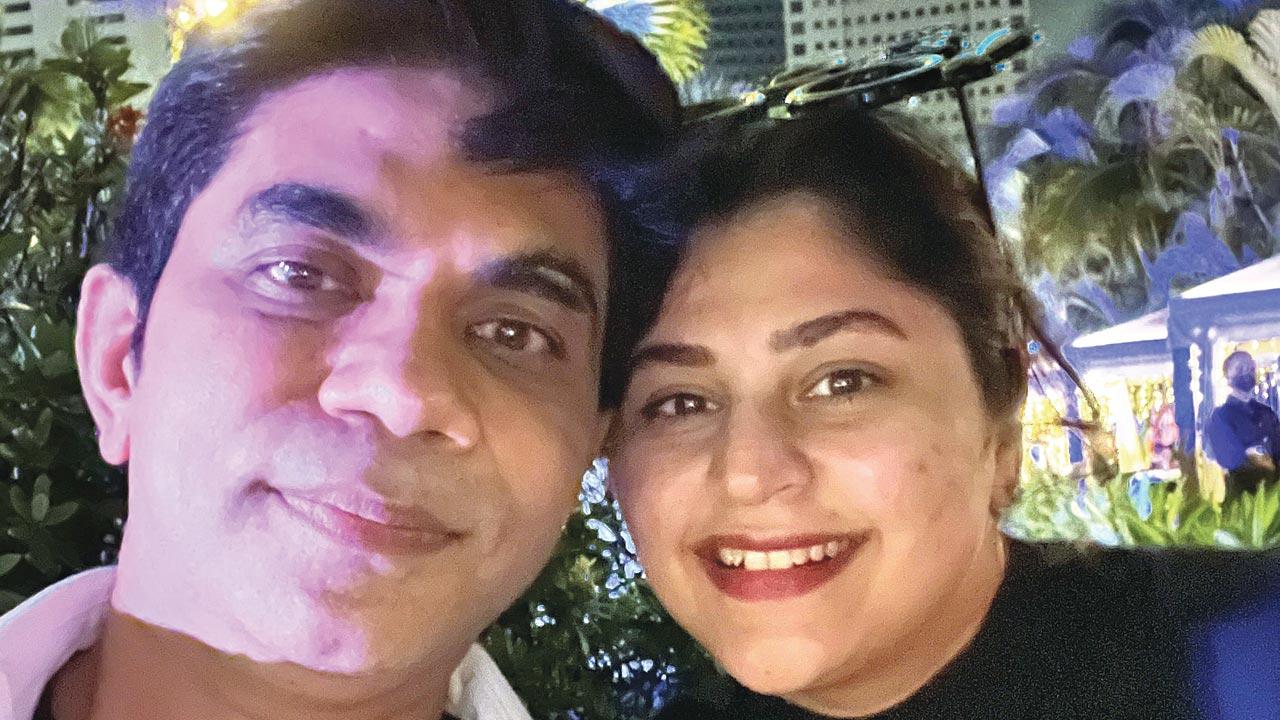 Barkha Menghani and her partner Amit Khandelwal almost called their relationship off when Menghani went through a bout of depression. Her decision to end their relationship pushed Khandelwal to seek counselling to understand her illness and support her through it. Together for five years, the couple agrees the past one year has been their best
Barkha Menghani and her partner Amit Khandelwal almost called their relationship off when Menghani went through a bout of depression. Her decision to end their relationship pushed Khandelwal to seek counselling to understand her illness and support her through it. Together for five years, the couple agrees the past one year has been their best
The upside, says Marker, is the rise in young couples seeking help for themselves individually, and as a unit. A testament to this is a city-based music professional, who was diagnosed with bipolar disorder in 2019. “At the time,” she says, “my parents could not accept my mental illness, but when I had a second psychotic episode three months later, they took it seriously and equipped themselves to deal with it better.”
Since then, the 28-year-old has been vocal about her condition with friends, and with the man she began dating a year or so later. “When we started getting serious, I decided to pay a visit to her doctor to have a better understanding,” says her partner, adding, “The doctor taught me a couple of grounding exercises to do with her daily, such as the 5-4-3-2-1 coping technique [The person lists five things they can see, four things they can touch, three things they can hear, two smells, and one thing that they can taste].”
However, he was not present during her latest psychotic episode, the first since they got together. “Thankfully, her mother, brother and I were able to help her through it over phone calls,” says the 27-year-old. She sees it as a small victory—managing an episode so well by herself, with remote help, that her workplace suspected nothing. She fears her condition may not sit well with her employers.
When asked whether it’s fair to shame someone for leaving a mentally ill partner, she says that while the goal is to become self-reliant, it is very challenging to battle a mental illness sans support system.
While the youth may be more aware, mental illnesses are not limited to them. Ghatkopar-based couple Kalpesh and Mansi Shah had a perfect life with their two daughters, both in their 20s, until they didn’t.
Around 2016, Kalpesh, a stock trader, found himself in the depths of depression and anxiety. The period stretched over nearly two years. All he remembers is his disinterest in everything and how even the slightest noise would annoy him.
“I was happy being alone,” says the 52-year-old. “On my days off, I would get up at noon and could go back to sleep soon after. I didn’t want to go anywhere, talk to anyone, do anything, not even meet my close friends. My confidence was at zero, and my appetite dropped.” The couple began sleeping in separate rooms. “He would get disturbed if I turned the slightest bit in bed,” says Mansi, who is 50. Initially, she felt someone had cast an evil eye on her husband.
This continued until Kalpesh got a panic attack at work and his boss asked him to consult a psychiatrist. “It was the first physical indication that something was wrong,” he says. He consulted a psychiatrist who prescribed anxiety medication for a year, and soon things started improving. Simultaneously, the couple began seeing a therapist, who would also hold sessions with both of them together, as well as individually.
Today Kalpesh doesn’t remember whether his depression impacted his family, but Mansi does. Vividly.
“He had stopped talking and would only respond in yes or no,” says the homemaker. “If I served food, he would just stare at it. If he was watching a show, the TV would be on much after it got over.” Once, he yelled at their daughters for trying to cheer him up. “It was our wedding anniversary,” Mansi recalls, “and they decorated the house. He lost his temper, which upset them greatly. Thankfully, our daughters were in their late teens and read up on his illness on the Internet. After that, we derived strength from each other.”
But the spousal relationship couldn’t remain unaffected. “I began sleeping on the floor, because I didn’t want to leave him alone,” says Mansi. “What if he does something? After a while, I heeded his request and slept in another room, but told him he couldn’t lock his door.”
With her husband seemingly detached, the fear that he might be having an affair crossed her mind. “I asked him about it, and told him I would forgive him,” she says, “but realised he was just avoiding all human interaction in general.”
A vital step for a caregiver is acceptance. “Acknowledge that you are living with someone who is mentally ill,” says Dr Puri, “Many people stay in denial mode. Also accept that you can deal with it.” She says the second step is to create your own healthy environment. “Build your own support system to whom you can talk about your struggles,” she says, adding that if not a therapist, this person “could be a friend, confidante, or a safe space.”
This support system held Mansi together. “There was family,” she says, “but our group of friends was my pillar of strength. Counselling changed our lives. Now, I have to ask him to shut up sometimes, and even if I don’t want to go anywhere, he will push me to or take me along.”
This understanding doesn’t come easy if talking about mental health is a taboo. Canine behaviourist Deepthi AR, had an arranged marriage in 2013. “Things weren’t going great,” says the 37-year-old, “and we went to a couple’s counsellor on my husband’s suggestion. When she saw I was breaking down at each sentence, she suggested that I heal myself before we heal as a couple. So I started [individual] therapy and was prescribed medicines for depression. This didn’t go down well with my in-laws. Suddenly their behaviour changed, and I was labelled ‘mentally unstable’.”
From then on, the situation became increasingly more challenging, and Deepthi felt unsupported by her partner. “His duty was limited to taking me to the doctor but by this time, I had begun to heal and could reason,” says the Bengaluru resident. “This helped me see things clearly. For instance, when my husband took me to the doctor, he said ‘she has a problem, please fix her’ and not ‘we have a problem and could you please help mend our relationship’. It also dawned on me that the relationship influenced my mental health.” Deepthi eventually separated from her partner in 2017.
Many people come to us, asking to “fix their partner” says Rwituja Gomes Mookherjee, a Bengaluru-based counsellor whose expertise is marriage counselling. “Both partners bring the baggage of everything they have been through, which plays out in the relationship. Often what is needed is to understand how one can give and receive not only love, but also kindness. People have different love languages. For instance, when one spouse is ill, all s/he wants to do is pop a pill and sleep, whereas the other wants to be asked how are they doing and whether you can do anything for them. Do the opposite of this, and either spouse will feel unloved. Both partners want their needs to be met. If one feels they are doing more than the other, conflict arises.”
A partner could also be in denial about their mental health due to social stigma. Bringing a counsellor into a relationship is a huge step for many. “They may see him/her as an intruder or fear judgement,” says Mookherjee. She suggests putting it diplomatically, saying you are bringing in someone to see whether you can handle the problem differently. “Tell them that you too are scared, and ask if you both can do it together,” she elaborates. “Make them feel like they have a choice and that they can retract it, instead of announcing that the decision has been made.”
For the younger, but wiser generation, a potential partner who seeks therapy is in fact, a green flag. “It indicates the person is invested in their growth and working on their trauma,” says Madh Island-based freelance writer Yashnashree, adding, “It also means that I won’t have to be their unpaid therapist, which is an unfair demand from any partner. It happens way too often, especially in cis-heterosexual relationships.” She also adds that expecting emotional support is fair, but your partner simply cannot be your therapist because they are not trained for it.
The 32-year-old writer underwent therapy a couple of years ago and that changed who she is in a relationship. “I wasn’t great at communicating,” she says, “and assumed certain things were understood, but now I know how it matters to some people. It also taught me the importance of creating boundaries in every relationship.”
Dating sites reflect this shift in collective thought. According to Tinder’s Future of Dating report, the mention of words such as ‘anxiety’ increased in bios by 31 per cent between January 2020 and February 2021. In 2020, the WHO estimated that 7.6 per cent of Indians were suffering from some mental health illness or the other.
“Member bios saw a 20 per cent increase in mention of therapy and mental health in 2022 as compared to 2021,” says Tinder’s relationship expert Dr Chandni Tugnait, adding, “For today’s generation, dating someone who struggles with mental health issues is not as intimidating as it was for previous generations. They’re more open to understanding and accommodating any additional needs or coping techniques their partner might need.”
 Subscribe today by clicking the link and stay updated with the latest news!" Click here!
Subscribe today by clicking the link and stay updated with the latest news!" Click here!







